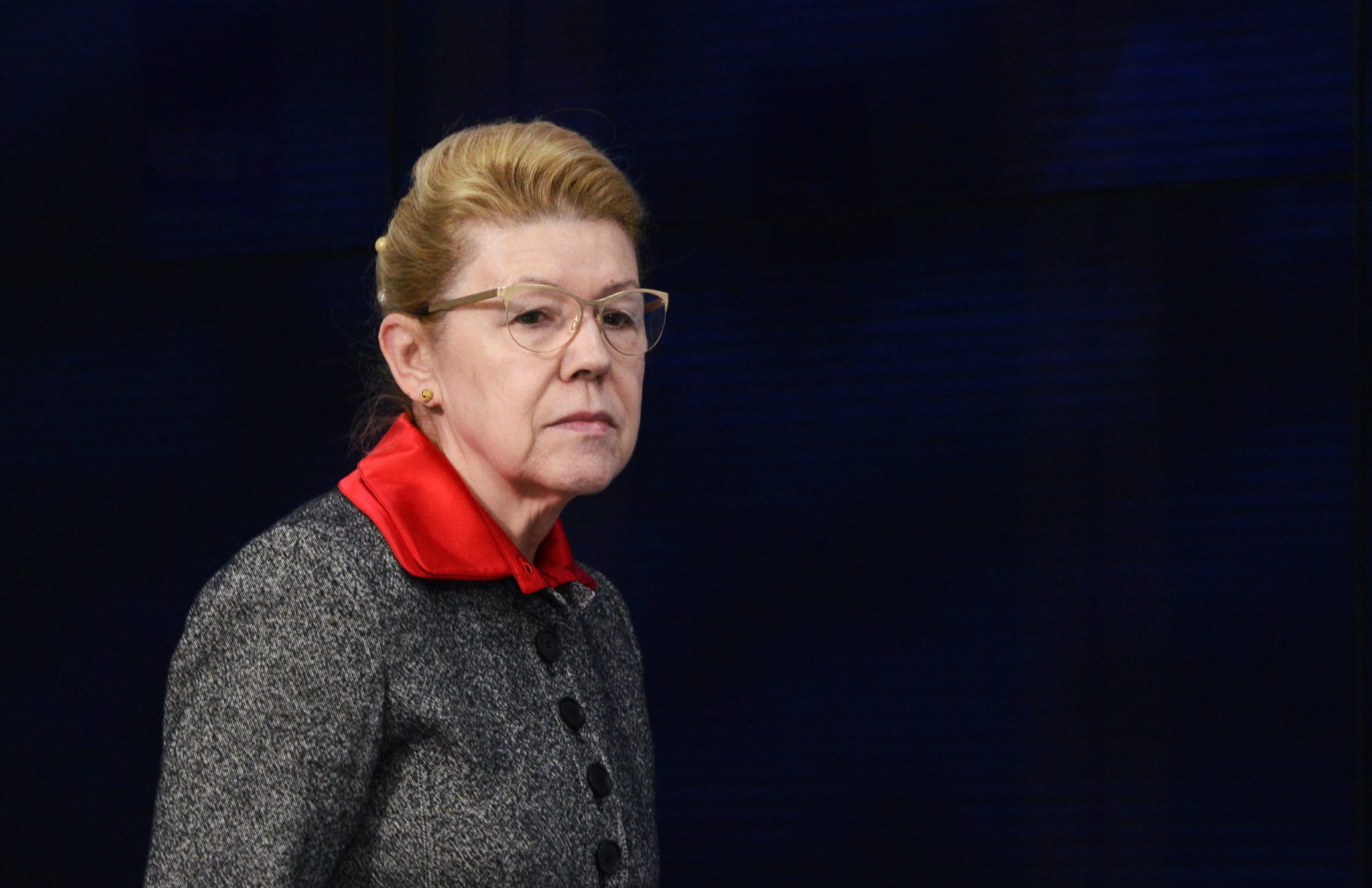Yelena Mizulina, who successfully lobbied for Russia’s 2012 “gay propaganda” law, has emerged as a chilling barometer of the lengths Vladimir Putin will go to squash LGBT+ rights. (Nikolai GalkinTASS via Getty Images)
Russia’s cabinet has rejected amendments to the country’s Family Code which would not only have banned marriage equality and same-sex adoption (which are already outlawed), but would also have legally erased trans people.
A bloc of hard-line, high-decibel anti-LGBT+ lawmakers drew up a package of policies masterminded by Vladimir Putin earlier this year to drum up support for a constitutional referendum.
It helped Putin eke out a victory in July, enabling him to rule until 2036 and opening a path for senator Yelena Mizulina, the architect of the 2012 gay propaganda bill, and other lawmakers to pitch a revised family code thick with anti-LGBT+ policies shortly after.
But according to draft ruling obtained by TASS, ministers have snuffed out Mizulina’s revisions.
Russia’s Government Commission on Legislative Activities rejected Mizulina’s draft law which “aimed at strengthening the institution of the family”. The agency is responsible for formulating the government’s position on draft laws.
It followed a ruling Tuesday (October 20) by the country’s Human Rights Council that said such changes would infringe on child welfare.
Russian Human Rights Council says changes require ‘public discussion’.
The council’s chairman, Valery Fadeev, told RIA Novosti that any tweaks to the Family Code of Russia – the bedrock of laws which relate to guardianship, children and marriage – must be handled carefully.
“The main idea is that such significant changes to the legislation can’t be carried out in a hurry, without broad expert and public discussion,” she said.
“The topic of taking children away is very delicate. And how can this not be made worse?”
“Here, too, the question arises: how deep can public institutions get into the family?
“All this needs to be balanced and in the centre, of course, should be the rights of the child.”
Fadeev sought to stress that any proposed changes to the Family Code demands broad public discussion.
But such a move is no balm for LGBT+ Russians, considering pollsters in 2019 found that a heaving 87 per cent of citizens are against marriage equality.
The raft of changes to the country’s 1993, post-Soviet constitution proposed by Putin and his cronies were designed to strike hot-button issues, with LGBT+ rights among them.
Amendments first pitched by Senator Yelena Mizulinam would have barred trans people amending the gender marker on their birth certificates.
Without the certificate, trans folk are stonewalled from obtaining a new passport, among other identification documents, effectively ending recognition of trans people in the country.
Mizulina’s amendments sought to further prohibit same-sex couples from getting married or adopting, despite both already being illegal. Supporters hoped to do this by defining marriage as between a man and a woman in the constitution itself.
